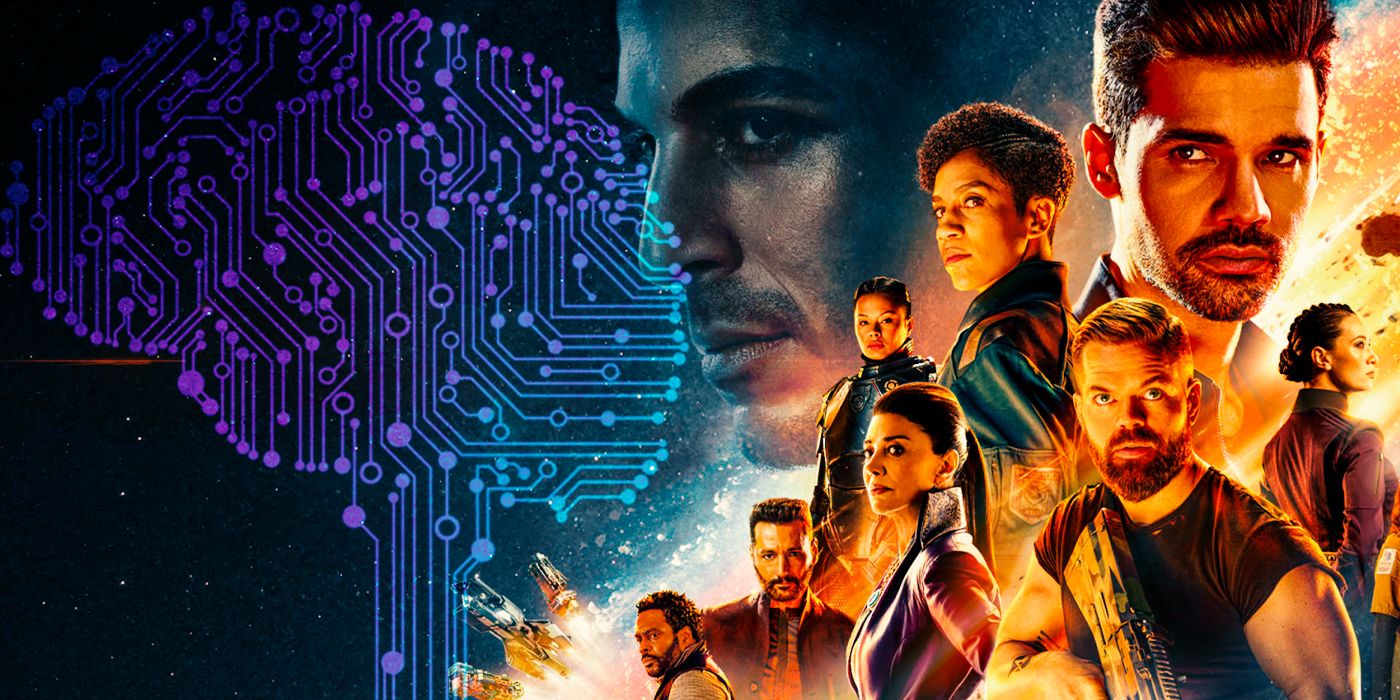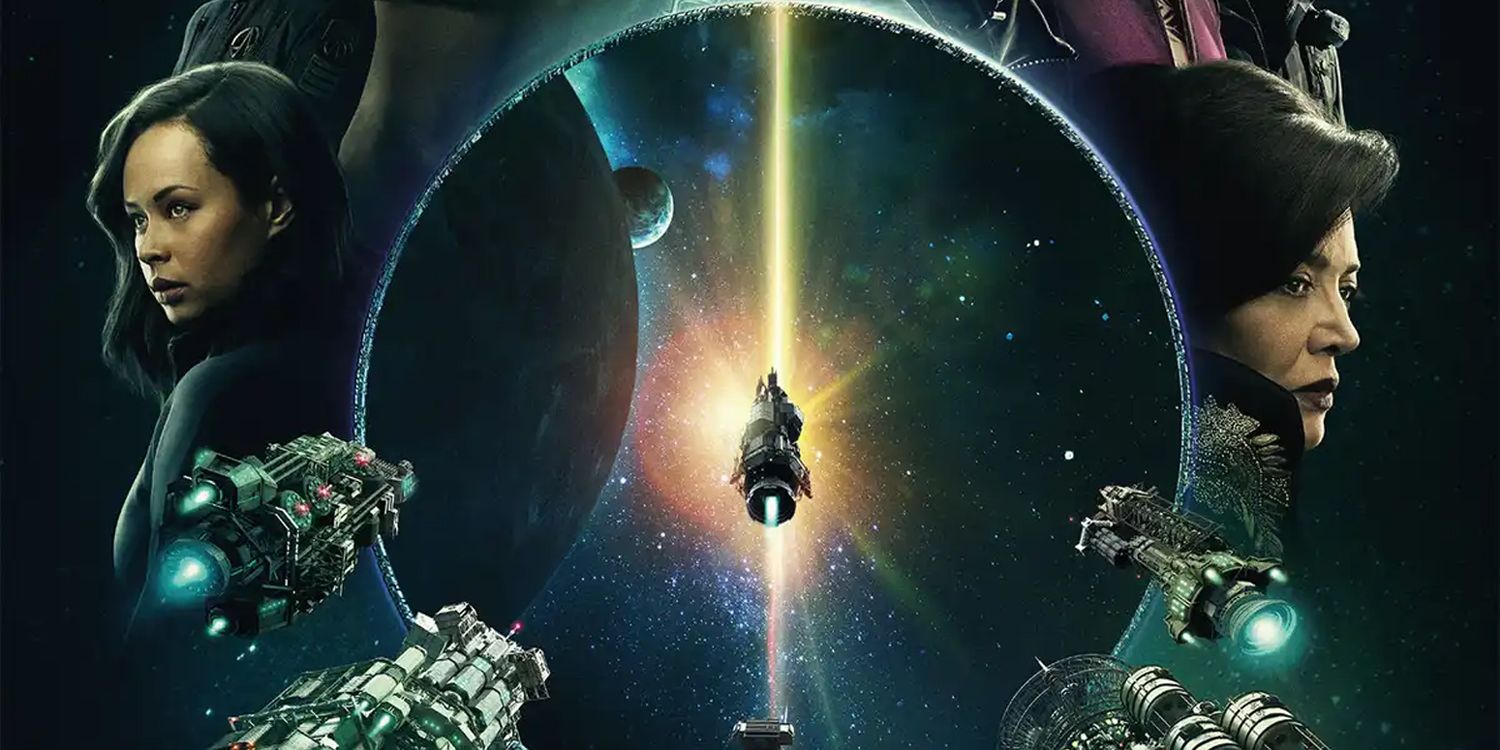WARNING: The following contains major spoilers for The Expanse, streaming now on Prime Video.
The Expanse, which has come to a cinematically breathtaking conclusion, seems to ignore the possibility of a future that is either densely populated by or beholden to Artificial Intelligence. James S. A. Corey, the pen name of the authors who wrote the novels that the beloved television show was based upon, gives a very simple reason for this apparent omission. The real drama in science fiction comes from the people who are placed in the varied scenarios that the future may provide and synthetic life playing a part in that dynamic is just not as interesting.
For devotees of the show who have always placed a premium on its ability to engage with an audience while adhering to hard sci fi or rather speculative fiction that endeavors to represent real world scientific principles at every opportunity, the absence of AI may seem glaringly unambitious. A world where humanity has successfully colonized other planets due to technological breakthroughs would seem poised to have discovered the secrets to facilitating machines made in man's image. The longer answer to this assertion is as straightforward and as complicated as its creators may have intended.
The events of The Expanse take place roughly 325 years in the future. Human beings have set up settlements on the moon, which is now called Luna. Terraforming efforts are in full swing on Mars, which has seceded from the Earther government and is entirely autonomous as it builds its own new world. Generations upon generations of workers have been born on asteroids in the belt, informally called Belters, who have adapted to their environment in ways that almost set them apart as a separate species. Each faction has their own bureaucratic framework, traditions and laws. The Belters however are marginalized to a severe degree within interplanetary society. They serve as miners and assorted blue collar laborers who have been disenfranchised by the Inners for decades but the entire system is rooted in a Cold War that gets warmer everyday.
One of the reasons humanity's expanding presence in the solar system is made possible is because of all of the invisible tendrils of sophisticated automated intelligence that are integral to most of the tools present in this interpretation of the future. Many of the transports, research equipment and heavy machinery all represent advancements in synthetic intelligence. There are medical bays that can diagnose ailments via scans and blood work with the speed of thought as well as provide automated surgical treatments. Gunships traverse the space ways by independently routing courses, at times piloting themselves and use complex targeting algorithms to lock onto precise locations at vast distances.
Given all of the variables that space deploys as obstacles, the mathematical calculations to achieve this type of precision far exceeds anything scientists can dream of today. Creating atmosphere out of thin air for instance is only capable in the universe of The Expanse because of the networked terraformers that churn out data as readily as they use advanced electromagnetic theory to manufacture a magnetosphere that would have eventually been the first crucial step in developing a layered protective shield around the planet. AI exists everywhere in The Expanse, its just incorporated into the housing of every daily tool.
The decision to not anthropomorphize synthetic intelligence was deliberate but it also may have been a vestige of the socio-economic realities of the society the Inners created. At one point in the lore of The Expanse the Martian project to transform Mars into a habitable planet without the need for domed structures was largely abandoned because of a discovered Ring Gate that led to thousands of worlds capable of supporting human life. Part of the charm of Mars was that it was a long term project that the entire planet had dedicated itself to achieving even though many of them would never see the fruit of their devotion within their lifetimes. This made Mars a bastion of aspiration that signified something more than just eking out a means of survival but crafting a paradise through discipline and hard work.
This dream came to naught because something easier presented itself and perhaps the darker side to a lack of human like automatons is rooted in this same dynamic. The Belters represent a caste system wherein the men, women and children who populate the asteroids that supply so much vital mercantile raw material to Earth and Mars are held within a prison of their brutal and hazardous circumstances. The lack of real gravity has changed their bodies so that their bones are more fragile and growing up in artificial environments has created a variety of genetic displacements that are common to all Belters but manifest in an astonishing array of ways. The Industrial Revolution came about after chattel slavery had been abolished and the wealth that had been created by an uncompensated workforce had been accumulated.
It has been theorized that one of the many drawbacks of slavery, outside of the horrific moral and societal costs that still play out to this day, was a lack of innovation. Since there was a ready made pool of exploitable human resources, there was no compulsion to determine a better way of doing things. The Belters serve the same purpose thematically and are relegated to dependencies that have been forced upon them by the Inners in an economic capacity, but also in a lived reality where Terran or Martian gravity would crush them. Their homes are also their prisons and since they are confined to the space of their birth without any opportunity to do anything other than what they were bred for, developing a subservient human like cohort of artificial beings would almost be redundant.
There is nothing in Corey's writings to suggest that this was in any way part of their intention in crafting the world they created in the way that they did, but considering that their work often presents existing paradigms beneath a fresh context it is not beyond the pale to speculate logical conclusions to the norms they have established. Corey finds androids to be boring and seeks to wade through the messy contradictions and complexities of what it means to be human in a way that explores the good and the bad and how it all intersects. In doing so they may have also inadvertently contextualized the lack of mannequin AI as a detractor from the servant caste that they have already masterfully created as a linchpin of their storytelling.
To see invisible AI at work, all episodes of The Expanse are streaming now on Prime Video.



